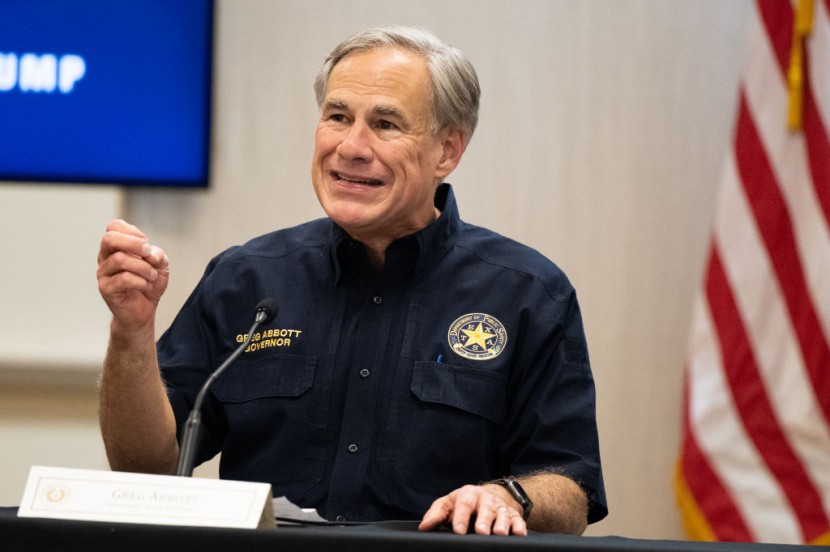
Immediately after President Joe Biden announced last week that he would pardon thousands of people convicted of minor marijuana offenses in the United States, a spokesperson for Texas Republican Gov. Greg Abbott stated that he would not issue pardons in his state, despite the president's request to governors across the country.
On Thursday, President Joe Biden announced the pardons, saying that "too many lives have been upended as a result of our misguided approach to marijuana."
Biden's Marijuana Pardons
Biden's decision is restricted to federal prosecutions and will not impact people found guilty of cannabis-related state crimes. The president urged governors to provide their pardons to anyone convicted of petty narcotics possession. However, Abbott spokesman Renae Eze stated immediately after Biden's statement that the Texas governor will not be giving pardons, even if the state's pardoning board recommends it.
Before the governor may award pardons, the Board of Pardons and Paroles must vote in favor of recommending them. Nonetheless, Eze believes Abbott would reject such ideas. Texas is not in the habit of hearing criminal justice advice from the head of the anti-police party and someone who has led a criminal justice system gone awry with cashless bail and a revolving door for serious offenders, Eze stated in response to Biden's remarks.
Despite Eze's assertions, President Joe Biden is not in favor of defunding the police, a move that would reallocate police department cash to social expenditure programs, allowing communities to confront issues at their root rather than depending on repressive enforcement systems. In the run-up to the 2022 midterm elections, far-right conservatives purposely misrepresented cash bail measures.
Abbott is seeking for re-election in the autumn. According to his campaign website, his Democratic opponent, former congressman Beto O'Rourke, supports "clearing the records of people jailed for marijuana possession, Truth Out reported.
Advocates Doubt POTUS Decision
Several other Republican governors have stated that they will not provide blanket pardons for marijuana possession. In a tweet, Arkansas Governor Asa Hutchinson accused Biden of "playing election-year politics." A representative for Alabama Governor Kay Ivey stated that he lacked the authority to offer broad pardons. Meanwhile, numerous Democratic governors applauded the widespread pardons.
"Today's government action will transform people's lives rather than stymie their progress," Colorado Governor Jared Polis stated in a tweet.
Louisiana Governor John Bel Edwards said it was the right decision, but that state law barred him from issuing mass pardons, as per Independent. Marijuana reform supporters are concerned that the assessment will not result in the government taking a more enlightened position on the most popular illegal narcotic in the United States.
Marijuana is classified as a Schedule I substance under the federal Controlled Substances Act, which means the government feels it has a high potential for abuse, no medicinal benefit, and no safe method to consume it even under medical supervision.
In 1972, the National Organization for the Reform of Marijuana Laws petitioned for a review of marijuana's classification, but they were unsuccessful. Since then, the government has dismissed many further applications, most recently in 2016, even though most states have legalized marijuana for medical or recreational purposes.
NORML's deputy director, Paul Armentano, is skeptical that the recent federal study would result in decriminalization. NORML and the Drug Policy Alliance want marijuana removed from the Controlled Substances Act entirely, rather than only transferred to a less restrictive schedule.
President Joe Biden announced the study with a sweeping pardon for thousands of people convicted at the federal level of simple marijuana possession.
However, last week, Biden announced that he would push his attorney general and the Department of Health and Human Services to "initiate the administrative process to expeditiously assess how marijuana is scheduled under federal law" - not that the scheduling must change in any way.
A senior administration official emphasized during a press conference that the review would not necessarily result in de-scheduling or any other predetermined conclusion. During his presidential campaign, Biden argued marijuana should be categorized as a Schedule II substance, contradicting other Democratic contenders who suggested it should be decriminalized.
The federal government considered the most recent petition to amend marijuana's scheduling for five years, with HHS offering feedback to the Justice Department in a process identical to the one underway now, before eventually saying no in 2016, according to Huff Post.
Related Article: DOJ Asks Supreme Court To Strike Down Donald Trump's Request To Intervene on Mar-a-Lago Raid Issue
@YouTube
© 2025 HNGN, All rights reserved. Do not reproduce without permission.








